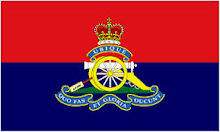The offensive would ultimately consist of 5 separate operations:
Offensive
|
Dates |
Code Name |
Location |
|
First
|
21 March to 5
April 1918
|
Michael
|
Somme Sector
|
|
Second
|
9 April to 29
April 1918
|
Georgette
|
Armentieres Sector
|
|
Third
|
27 May to 4 June
1918
|
Blucher
|
Aisne / Chenin Des
dammes
|
|
Fourth
|
8 June to 12 June
|
Gneisenau
|
Aisne
|
|
Fifth
|
15 July to 17 July
|
Reims-Marneschutz
|
Reims / Marne
|
 |
| German Spring Offensive der Kaiserschlacht |
On the 9th April the German First Army launched their attack after a 2 day bombardment. The main focus of the attack was the Portuguese 2nd Division in the area around Neuve Chappelle. The Portuguese after hours of heavy fighting were forced to withdraw towards Estaires.
 |
| Portuguese National Cemetery Richebourg |
The 50th Northumbrian Division were in reserve along the River Lys. The Division had been deployed to the area after suffering heavy casualties on the Somme when the Germans launched Operation Michael.
The 50th Northumbrian Division were deployed to block the German attack and became engaged in the Battle of Estaires.
The Germans were able to break through the British lines along a 15km (9.3 miles) front to a depth of 8km (5 miles). As the British retreated Field Marshall Haig issued a communique, a special order of the day urging the British Army "to fight it out", "every position must be held to the last man", "no retirement".
Defending crossing points on the River Lys, the Northumbrian Division were able to slow the advance, though the Germans eventually forced themselves across the river. After heavy fighting the front stabilised and the advance was blocked.
The Germans launched more attacks to the north over the next two weeks forcing more ground to be given up. However, by the 29th April 1918, the German onslaught had been stopped. The Germans would advance no further during World War One.
The Germans were able to break through the British lines along a 15km (9.3 miles) front to a depth of 8km (5 miles). As the British retreated Field Marshall Haig issued a communique, a special order of the day urging the British Army "to fight it out", "every position must be held to the last man", "no retirement".
Defending crossing points on the River Lys, the Northumbrian Division were able to slow the advance, though the Germans eventually forced themselves across the river. After heavy fighting the front stabilised and the advance was blocked.
 |
| Bridge at Estaires on River Lys |
 |
| German Offensive on the Lys April 1918 |






























